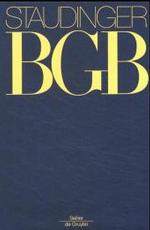- ホーム
- > 洋書
- > 英文書
- > Literary Criticism
Full Description
An extensive look at historical, literary, and media representations of '68 in Germany, challenging the way it has been instrumentalized.
In Germany, the concept of "1968" is enduring and synonymous with the German Student Movement, and is viewed, variously, as a fundamental liberalization, a myth, a second foundation, or an irritation. The movement's aims - radicalre-imagination of the political and economic order and social hierarchy - have been understood as requiring a "long march." While the movement has been judged at best a "successful failure," cultural elites continue to engage inthe construction of 1968. Ingo Cornils's book argues that writing about 1968 in Germany is no longer about the historical events or the specific objectives of a bygone counterculture, but is instead a moral touchstone, a marker ofsocial group identity meant to keep alive (or at bay) a utopian agenda that continues to fire the imagination. The book demonstrates that the representation of 1968 as a "foundational myth" suits the needs of a number of surprisingly heterogeneous groups, and that even attempts to deconstruct the myth strengthen it. Cornils brings together for the first time the historical, literary, and media representations of the movement, showing the motivation behindand effect of almost five decades of writing about 1968. In so doing, Cornils challenges the way 1968 has been instrumentalized: as a powerful imaginary that has colonized every aspect of life in Germany, and as symbolic capitalin cultural and political debates.
Ingo Cornils is Professor of German Studies at the University of Leeds.
Contents
Preface
Acknowledgments
Introduction
Heroes and Martyrs
Chroniclers and Interpreters
Critics and Renegades
Talespinners and Poets
Women of the Revolution
"1968" and the Media
"1968" and the Arts
Zaungäste
Not Dark Yet: The 68ers at 70
Romantic Relapse or Modern Myth?
Conclusion
Notes
Bibliography
Index








